Do I need planning permission for an annexe? Not usually, provided you don’t use it for this one reason, say experts
Don't get caught out by planning rules for annexes - here's what you need to know
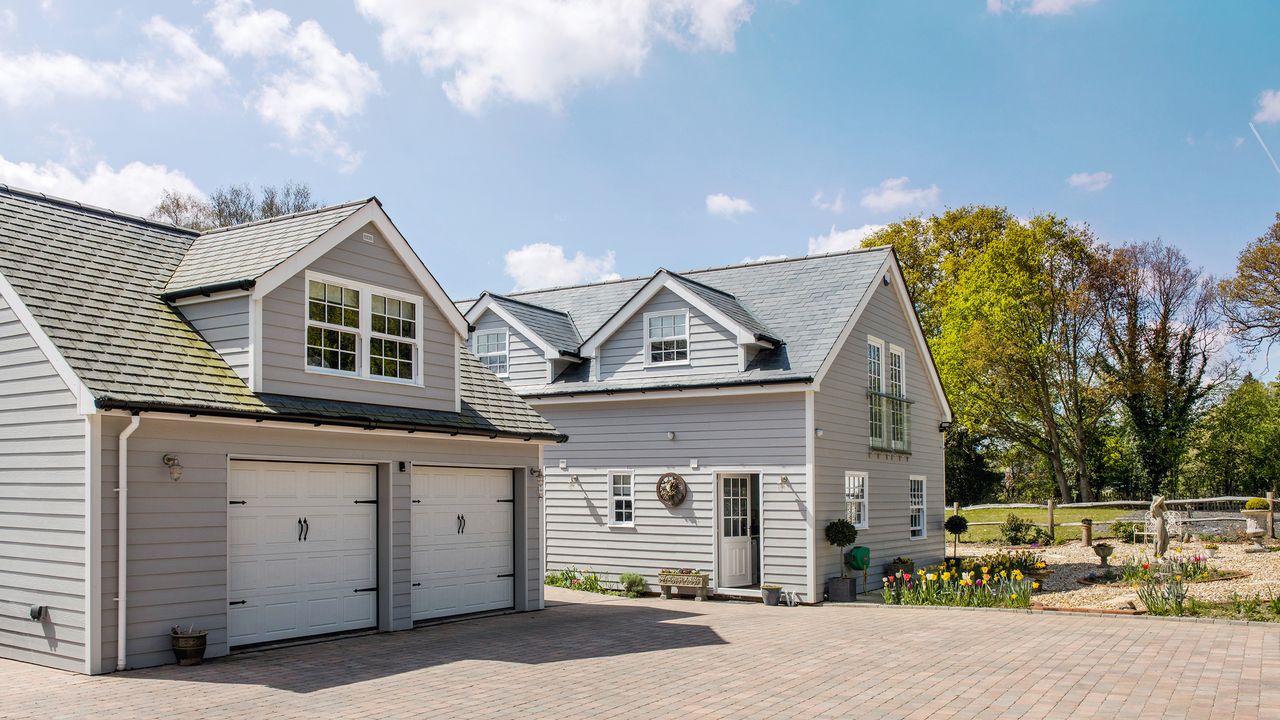
Adding a little extra space doesn’t necessarily mean it has to be directly attached to the main house. An annexe might be the ideal solution. But do you need planning permission for an annexe or can you go ahead without?
Annexes offer a great deal of flexibility and they can either be built from scratch in a garden, or converted from a garage, outbuilding or side extension. A rising number of people are choosing to build or convert outbuildings into annexes for home offices, gyms, guest rooms, and suites for parents or children to move in (affectionately called granny flats).
However, the world of planning permission can be a complex process and often takes longer than the eight weeks guide timeline. So do you actually need it for an annexe or not?
Do I need planning permission for an annexe?
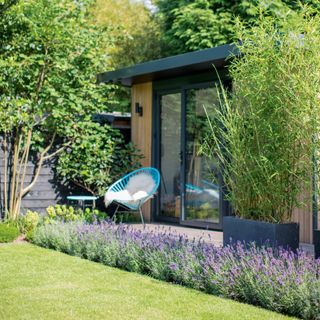
As long as no one will permanently live in the new space, planning permission is generally not required for an annexe, as long as certain Permitted Development criteria are met. However if you live in a listed building or conservation area, you may need a full planning application and approval before construction can begin.
'There are often subtleties on projects either due to site conditions or local planning policies/conservation areas which can have differing views on these structures,' explains Mike Bell, founder of FAB Architects. 'Permitted development is often assumed to be straightforward, but all too often we will find clients who have been caught in the grey areas of planning policy.
'My advice is to speak with a local professional who will be aware of these subtleties and can formulate a strategy. I would always expect to have a formal appointment and pay for initial advice on this as that way the architect will be in a stronger position to assist from both a business and insurance perspective. Local planning consultants are also invaluable at this stage, I will often refer an initial enquiry for an annexe or garden studio in Conservation Areas to a local planning consultant first and then when the principle has been established, work through the design with the clients.'
The motivation of adding an annexe might not just be for visitors, as they're great way of creating a granny flat for elderly parents or even a space of solitude for adult children living at home. If the purpose of an annexe is for a resident to permanently live inside, full planning permission will be required, even if you don’t live in a conservation area or listed building. If you are at all unsure, contact the planning authority for local information.
Get the Ideal Home Newsletter
Sign up to our newsletter for style and decor inspiration, house makeovers, project advice and more.

RIBA-certified Mike Bell founded his Sussex-based practice in 2017, focussing on sustainable design solution for homes across the South East of England.
Do I need planning permission to convert an outbuilding into an annexe?
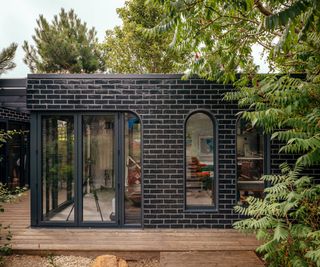
If you have an existing outbuilding, such as a barn, garage or storehouse, and you would like to repurpose it for use as living quarters you can apply for a change of use under permitted development.
Occasionally, some homeowners take a chance at building an outbuilding before waiting a period of time and then applying for a change of use to circumvent the planning process. This is not a guaranteed concept and may do your plans more harm than good.
Can I convert my standalone garage into an annexe?
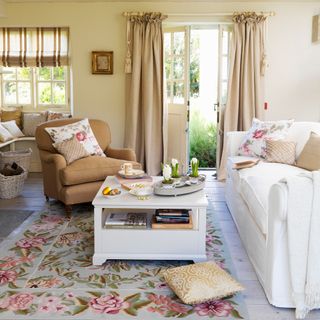
You can convert a garage into an annexe and they can be fantastic uses of often redundant spaces. To comply with Permitted Development, it must also not be more than one storey and any larger than 30m2 in floor area, otherwise planning permission for a garage conversion will be required. For a garage on the plot of a Listed Building, planning permission is always required.
FAQs
Can an annexe have a kitchen and bathroom?
Although annexes can indeed have both a kitchen and a bathroom, the installation might add a complexity to the project that needs careful consideration.
Interestingly, there might be implications of having an annexe with separate a kitchen and bathroom that go beyond planning permission.
'Annexes that provide accommodation beyond the remit of ancillary use to the host dwelling may be subject to different restrictions and potentially CIL [community infrastructure levies] charges to the council (which could add quite a bit of unseen cost),' says Mike Bell.
"Many [mortgage] lenders prefer properties with shared utilities due to perceived risks and actually won't lend for properties with annexes that have their own independent utility supplies," adds Luther Yeates, head of mortgages at UK Expat Mortgage. "It's not uncommon for people to be rejected by their current bank when remortgaging with a new annexe without specialised house insurance, too."

Do building regulations apply to an annexe?
Yes, you will need to comply with building regulations when building a new annexe, converting an outbuilding or modifying an existing annexe. This shouldn't be seen as a negative factor to put you off the project, however. Added insulation, ensured safety and a certain level of comfort are all encompassed within the relevant regulations and can prevent issues further down the line.
“I think it's a good principle to view building regulations as rules that are set out to help provide good quality architectural space and comfort. Work with your architect, building control officer (or approved inspector) and builder to ensure this is being provided in your new space,” comments Mike Bell.
If a separate annexe isn't the right option for your home, you could try building an extension or converting your loft to get the additional space you need.
Amy is an experienced interiors and renovation journalist. She was Assistant Editor of Ideal Home's sister brand Homebuilding & Renovating for five years, before becoming an editor for Independent Advisor. Amy is also an experienced renovator herself. With her partner, she has renovated a mid-century property on a DIY basis, and is now taking on an 1800s cottage in Somerset.
-
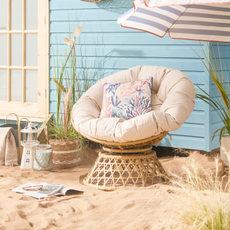 B&M has nailed 2025's breakout garden furniture trend - it's one of the most affordable and stylish I've seen
B&M has nailed 2025's breakout garden furniture trend - it's one of the most affordable and stylish I've seenGet the luxe look for less
By Kezia Reynolds
-
 This expert-recommended £5 M&S buy will stop yellow stains on your pillows – shoppers are raving about the quality for the price
This expert-recommended £5 M&S buy will stop yellow stains on your pillows – shoppers are raving about the quality for the priceThis bestselling M&S buy solves a common bedding issue, and it's only £5
By Amy Lockwood
-
 Are cylinder vacuums having a comeback? Miele’s newest release has me questioning why they even left in the first place
Are cylinder vacuums having a comeback? Miele’s newest release has me questioning why they even left in the first placeI put Miele's brand new vacuum through its paces, and it packs some serious power
By Lauren Bradbury